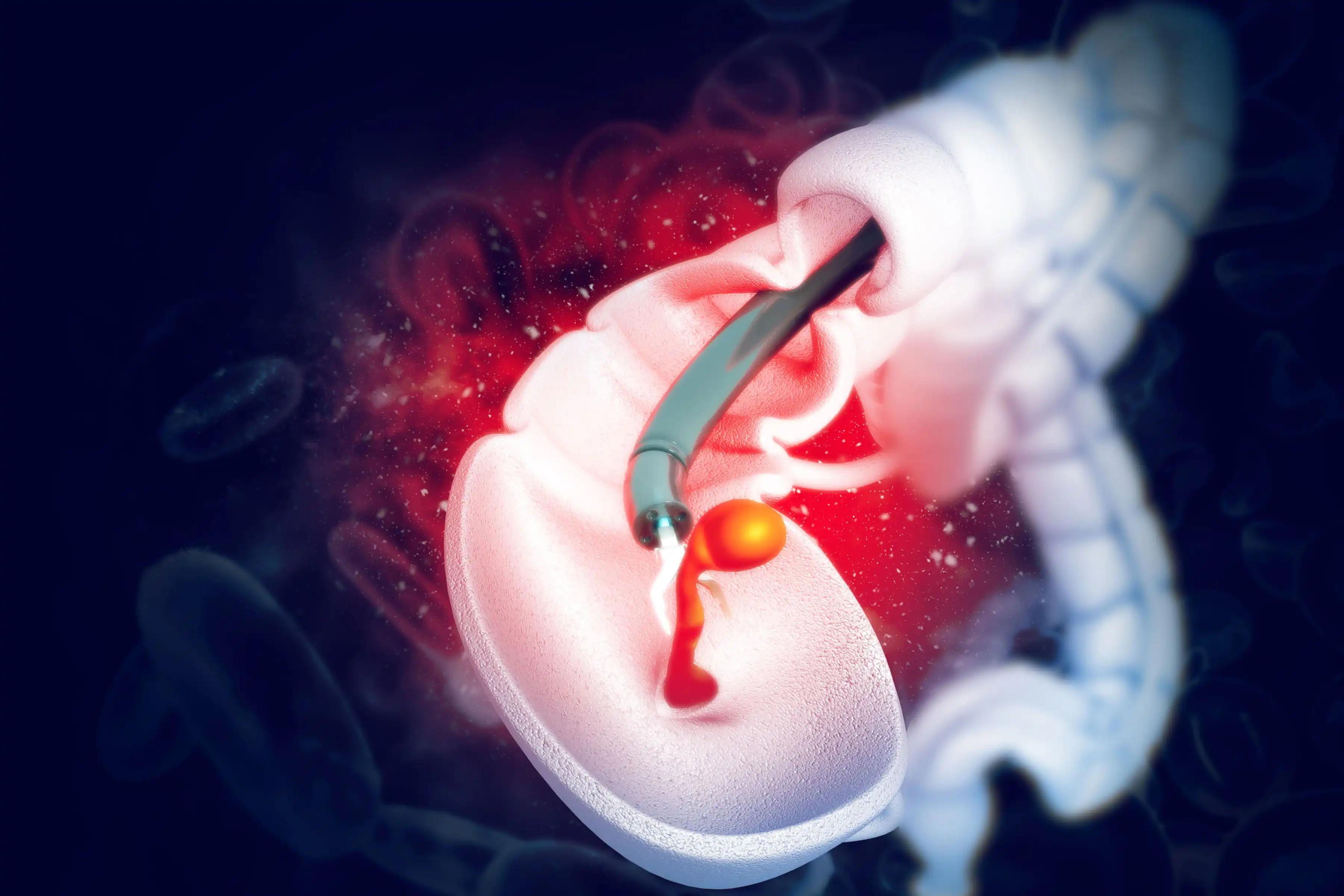KEY TAKEAWAYS
- The EA2201 phase 2 trial aimed to assess the efficacy and safety of a multimodal treatment approach for MSI-H/dMMR LARC.
- The primary endpoint was to determine pCR.
- MSI-H/dMMR LARC achieved pCR + cCR rates comparable to the previous studies, further redesigning of the trial is hinted.
Small studies have shown varying effectiveness of anti-programmed cell death protein-1 (anti-PD-1) therapy alone in locally advanced rectal adenocarcinoma (LARC) characterized by microsatellite instability-high (MSI-H) or mismatch repair deficiency (dMMR), thus achieving clinical complete response (cCR) and/or pathologic complete response (pCR) rates ranging from 38% to 100%.
Kristen K. Ciombor and her team evaluated the efficacy and safety of a multimodal approach to improve outcomes for patients (pts) with MSI-H/dMMR LARC. They compared the treatment regimen which included a combination of nivolumab (nivo) (anti-PD-1), ipilimumab (ipi) (anti-CTLA-4), and short-course radiation therapy (SCRT) followed by total mesorectal excision (TME).
Researchers enrolled treatment-naïve pts with MSI-H/dMMR LARC in the EA2201 trial. Patients received nivo (480 mg) and ipi (1 mg/kg) every 28 days for 2 cycles, followed by SCRT (5 Gy x 5 fractions), and an additional 2 cycles of nivo + ipi before disease reassessment and TME.
EA2201 utilized a 2-stage design with the primary endpoint of pCR. In the event of a lower-than-expected TME rate, a combined endpoint of pCR + cCR was permissible. The trial aimed to enroll 31 pts across 2 stages, with statistical hypotheses set for response rates to evaluate treatment efficacy.
The analysis revealed that 14 pts were enrolled in the first stage, a cCR or pCR rate of 57.1%, with a (95% CI: [31.2%-83.1%]). Among the pts who underwent TME, all 3 achieved pCR. Additionally, 6 pts, including 1 who underwent TME, achieved cCR.
The early termination of the treatment protocol was due to – cCR rates , patient refusal of TME and/or physician decision, and adverse events (AEs) encountered by 4 out of the 14 pts. Grade 3 AEs observed included abdominal pain/rectal obstruction, fatigue, urinary tract infection, elevated liver enzymes (AST/ALT), decreased lymphocyte count, acidosis, and arterial thromboembolism. One patient experienced a grade 4 event of hypokalemia.
These findings provide an early insight into the efficacy and safety profile of the multimodal treatment approach involving nivo, ipi, SCRT, and TME in pts with MSI-H/dMMR LARC, highlighting promising response rates alongside manageable AEs.
The trial concluded that immunotherapy may reduce the need for aggressive interventions in MSI-H/dMMR LARC, achieving pCR + cCR rates comparable to previous studies. As a result, the trial is considering a redesign to administer nivo and ipi initially, followed by tailored additional nivo monotherapy if necessary.
The trial was sponsored by National Cancer Institute (NCI).
Source: https://cslide.ctimeetingtech.com/esmogi24hybrid/attendee/confcal/show/session/28
Clinical Trial: https://clinicaltrials.gov/study/NCT04751370
Ciombor K K, Hong SC, Eng C, et al. (2024). “Neoadjuvant nivolumab plus ipilimumab in microsatellite instability-high (MSI-H)/deficient mismatch repair (dMMR) rectal tumors: ECOG-ACRIN EA2201.” Presented at ESMO-GI 2024, (Abstract 242MO).



